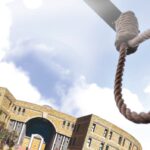… Raises serious concerns about the limited capacity of DCEO
The United Nations Human Rights Committee has urged Lesotho to take concrete action to prevent and eradicate corruption at all levels, ensure that all corruption cases are promptly tried, and that perpetrators are adequately punished.
The recommendation is contained in a new report compiled by the Office of the UN High Commissioner for Human Rights, forming part of Lesotho’s fourth Universal Periodic Review (UPR), which began on April 28 and runs until May 9, 2025, in Geneva.
While the Committee acknowledged ongoing efforts to tackle corruption, it raised serious concerns about the limited capacity of the Directorate on Corruption and Economic Offences (DCEO) to effectively investigate and prosecute cases.
It noted that a 2019 bill aimed at bolstering the DCEO remains unimplemented, hampering efforts to curb economic offences. The Committee urged Lesotho to adopt the bill, enhance the DCEO’s autonomy and funding, and ensure swift prosecution of corruption cases to promote transparency and accountability.
The report was prepared pursuant to Human Rights Council resolutions 5/1 and 16/21, taking into consideration the outcome of the previous review.
It is a compilation of information contained in relevant United Nations documents, presented in a summarised manner owing to word-limit constraints.
It read: “The same Committee recommended that Lesotho step up its efforts to prevent and eradicate corruption at all levels, including through the effective implementation of legislative and preventive measures to combat corruption, including by adopting the bill on the prevention of corruption and economic offences, and promote good governance, transparency and accountability; strengthen the capacity, autonomy and financial and human resources of the Directorate on Corruption and Economic Offences; and ensure that all cases of corruption were promptly and duly tried and the perpetrators adequately punished.”
In its submission to the Committee, the Government of Lesotho outlined steps taken to enhance the DCEO’s capacity.
These included the establishment of district anti-corruption committees in all 10 districts, supported by the European Union (EU), to facilitate community-level reporting of corruption.
“Further, in June 2024, DCEO, UNODC and ARINSA, hosted a workshop to strengthen Lesotho’s regulatory framework and enforcement capabilities in the fight against money laundering,” read the government’s report.
“The workshop targeted prosecutors and investigators, equipping them with skills and strategies to combat financial crimes effectively. It also trained them on detecting the synergies and schemes of suspects and prosecuting cases of money laundering,” it added.
While Lesotho has no dedicated anti-corruption court, the report acknowledges that corruption suspects are remanded in magistrates’ courts before cases are transferred to the High Court, which is considered better equipped to handle such matters.
“The capacity-building workshop was also held for the members of the judiciary in November 2024. It equipped them with skills to deal with cases of money laundering and corruption effectively,” it read.
In December last year, Newsday reported that during the first half of the financial year, which began on April 1, 2024, DCEO documented 220 reports of alleged corruption, money laundering, and related offences totalling M203.8 million.
This was revealed by Minister of Finance and Development Planning, Dr Retšelisitsoe Matlanyane, while delivering the mid-term budget speech for the 2024/2025 financial year to Parliament.
Matlanyane said that out of those reports, 162 cases were referred for further investigation, while 58 were directed to the appropriate institutions for action.
“Mr. Speaker, in our continuous efforts to combat corruption, the implementation of an in-house electronic case management system has greatly enhanced the DCEO’s capacity to manage case flow,” she said.
“A dedicated call center has also been established, enabling the public to report corruption incidents at any time and from any location,” she added.
DCEO’s spokesperson, ‘Matlhokomelo Senoko, confirmed the figures to Newsday saying they reflected the agency’s activities during the first and second quarters of the 2024/2025 financial year.
“The report is for the first and second quarters,” Senoko said.
Despite successive governments professing a commitment to eradicating corruption, the vice remains deeply entrenched in Lesotho’s public service.
DCEO, the country’s key anticorruption institution, has faced sharp criticism for its perceived inability to combat this pervasive issue effectively.
Commentators argue that Lesotho’s anti-corruption policies and accountability mechanisms are weak, while access to critical information remains elusive for citizens outside government circles.
In recent years, a series of scandals implicating ministers and the awarding of public contracts has further eroded public trust in the state.
The U.S. Department of State’s 2023 Country Reports on Human Rights Practices published in April this year underscored these concerns, acknowledging that while Lesotho’s laws provide for criminal penalties for corruption, their enforcement is inconsistent.
“There were numerous reports of government corruption, and some officials engaged in corrupt practices with impunity,” the report stated.
Summary
- The recommendation is contained in a new report compiled by the Office of the UN High Commissioner for Human Rights, forming part of Lesotho’s fourth Universal Periodic Review (UPR), which began on April 28 and runs until May 9, 2025, in Geneva.
- While the Committee acknowledged ongoing efforts to tackle corruption, it raised serious concerns about the limited capacity of the Directorate on Corruption and Economic Offences (DCEO) to effectively investigate and prosecute cases.
- “The same Committee recommended that Lesotho step up its efforts to prevent and eradicate corruption at all levels, including through the effective implementation of legislative and preventive measures to combat corruption, including by adopting the bill on the prevention of corruption and economic offences, and promote good governance, transparency and accountability.

Ntsoaki Motaung is an award-winning health journalist from Lesotho, specializing in community health stories with a focus on sexual and reproductive health and rights, as well as HIV. She has contributed to platforms like “Be in the KNOW,” highlighting issues such as the exclusion of people with disabilities from HIV prevention efforts in Lesotho.
In addition to her journalism, Ntsoaki serves as the Country Coordinator for the Regional Media Action Plan Support Network (REMAPSEN). She is also a 2023 CPHIA Journalism Fellow.






